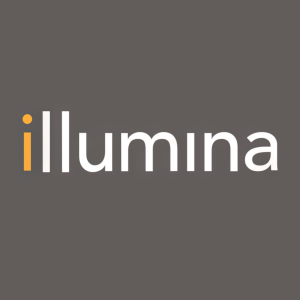The Emerging Population Genomics Revolution
Rhea-AI Summary
Population genomics programs are expanding globally as nations seek to understand their populations' genetic variations. While early studies like UK Biobank were largely Eurocentric, new initiatives are emerging worldwide to address genetic diversity gaps. Countries including Thailand, Saudi Arabia, UAE, Australia, Singapore, Turkey, and Nigeria are launching sequencing programs to gain population-specific insights and develop their genomics infrastructure.
These programs aim to drive precision medicine and economic development by creating biotech clusters, generating jobs, and attracting international talent and investment. Pharmaceutical companies are particularly interested as genomically-informed drugs are reportedly more likely to reach the market and less expensive to develop.
Positive
- Growing global expansion of population genomics programs creates new market opportunities
- Programs drive creation of biotech clusters and economic development
- Increased pharmaceutical industry interest due to better drug development prospects
- Creation of new markets in emerging economies
Negative
- Infrastructure challenges in emerging markets may slow implementation
- Significant investment required for program development and infrastructure
- Workforce recruitment and retention difficulties in developing markets
News Market Reaction
On the day this news was published, ILMN gained 1.47%, reflecting a mild positive market reaction.
Data tracked by StockTitan Argus on the day of publication.
Around the world, countries are racing to develop nationwide sequencing programs to address their specific health needs
NORTHAMPTON, MA / ACCESSWIRE / October 28, 2024 / Illumina
Originally published on Illumina News Center
The Human Genome Project described the first (almost) complete reference genome, but it didn't say much about human variation. For that, scientists had to conduct massive population genomics (pop gen) studies, sequencing millions of people to better understand the genetic distinctions, in specific populations, that confer good health or disease. The UK Biobank, deCODE, and the Million Veterans Program were early examples.
These programs have produced incredibly useful genomic data, but they have also left significant gaps. In many cases, pop gen studies have been heavily Eurocentric, missing data that could help scientists, clinicians, and public health officials understand the genomic variations that affect people of African, South American, or Asian descent.
"The vast majority of genomic data that scientists have collected is from people of European descent," says Helen Speirs, Illumina's leader for Large National Genomics Initiatives in Africa, the Middle East, and Asia (AMEA). "That means we can't make a lot of calls about how genomic variants in people with non-European ancestry cause disease or how to develop drugs that will be most effective for them."
To help close these gaps, dozens of nations have begun pop gen programs. In time, these efforts will help them gather nuanced molecular information to drive better care for their people- precision genomics.
"These national initiatives all want to utilize genomics in health care in some form," says Graeme Bethel, Illumina's head of Strategic Growth for AMEA. "But first, they must sequence thousands of research genomes to get a better understanding of their population and develop the infrastructure needed to scale genomics into health care."
Building a pop gen program from the ground up
Having supported the UK Biobank and other programs from their earliest days, Illumina has a unique position in the pop gen ecosystem. Quite often, company experts step in as consultants to help these long and complex projects get off the ground.
"We try to engage very early in these projects to help them avoid the mistakes of the past," Bethel says. "There are government, institutional, scientific, and clinical people involved, and they all want to understand how these complicated collaborations are going to work."
While many emerging nations want to initiate pop gen projects, they may lack the molecular biology infrastructure to build robust efforts. Underdeveloped sequencing programs and cold storage capabilities are just two potential barriers.
"They understand they have to move these projects forward, or they're going to fall further behind," says Speirs, "but the challenges can be huge. Even the basics of recruiting and maintaining a workforce can be quite difficult."
Some countries have overcome these problems by shipping samples abroad for sequencing. The new push is to maintain data ownership to ensure that the people providing their DNA receive the full benefits of sequencing.
Clinical and economic payoffs
In addition to producing scientific and clinical knowledge, these efforts can be engines for economic development. Japan's ToMMo project grew out of recovery efforts following the 2011 earthquake and tsunami near Fukushima.
Worldwide, the number of pop gen projects is expanding rapidly, counting efforts in Thailand, Saudi Arabia, the United Arab Emirates, Australia, Singapore, Turkey, Nigeria, and other nations. In addition to gaining the unique insights only sequencing can provide, these countries hope to recruit investors and develop homegrown genomics industries.
These emerging biotech clusters generate well-paying jobs and attract talent from around the world. In some cases, scientists who emigrate to the US, UK, or other developed nations return to their home countries as the new industry creates an economic center of gravity.
Pharma companies and venture capitalists are also showing interest. Sequencing more diverse populations could uncover better drug targets (and produce better targeted drugs), which could benefit all populations.
"I was recently speaking to a private consortium in India that wants to invest in biobanks and generate sequencing and phenotypic data to really understand the Indian population," Bethel says. "Companies know that genomically informed drugs are less expensive to develop and more than twice as likely to get to market. It's a powerful incentive."

Photo © Alejandro Moreno de Carlos
View additional multimedia and more ESG storytelling from Illumina on 3blmedia.com.
Contact Info:
Spokesperson: Illumina
Website: https://www.3blmedia.com/profiles/illumina
Email: info@3blmedia.com
SOURCE: Illumina
View the original press release on accesswire.com







